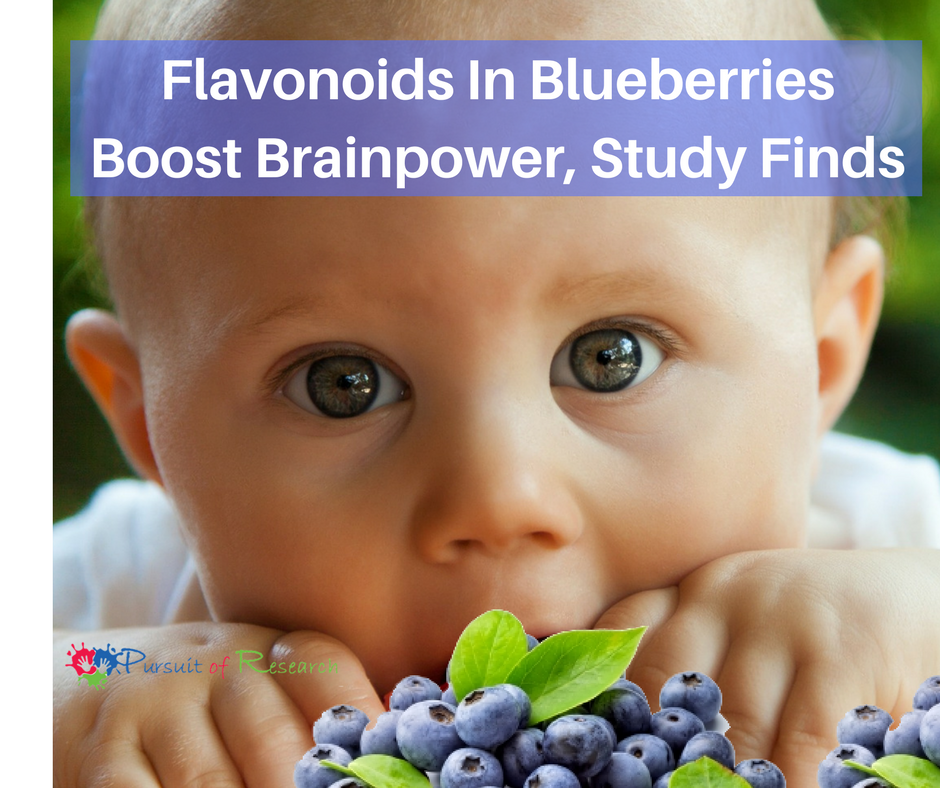Flavonoids boost brain power and may also improve focus and attention. Like other phytonutrients, flavonoids, found naturally in almost all plants including fruits, vegetables, and Ayurvedic botanicals, are powerful antioxidants which have been associated with a wide range of health benefits. A double blind trial found that children who consumed a flavonoid-rich drink had 9% quicker reaction times on a test without any sacrifice of accuracy.

Flavonoids boost brain power and may also improve focus and attention. Like other phytonutrients, flavonoids, found naturally in almost all plants including fruits, vegetables, and Ayurvedic botanicals, are powerful antioxidants which have been associated with a wide range of health benefits including anti-inflammatory, immune system and mood benefits, however, studies also indicate an enhanced cognitive benefit. While there have been studies that have shown improvements in the adult population this was the first one of its type in children.
Professor Claire Williams, a neuroscience professor at the University of Reading said: “This is the first time that we have seen the positive impact that flavonoids can have on the executive function of children. “We designed this double blind trial especially to test how flavonoids would impact on attention in young people as it’s an area of cognitive performance that hasn’t been measured before.”
In a paper published in Food & Function, a group of 7-10 year olds who consumed a drink containing flavonoid-rich wild blueberries or a matched placebo and were tested on their speed and accuracy in completing an executive task function on a computer.
Flavonoids are a diverse group of phytonutrients (plant chemicals) found in almost all plants including fruits, vegetables, and Ayurvedic botanicals. There are 6 main classes of flavonoids: Anthocyanins, Flavonols, Flavones, Isoflavones, Flavanones, and Flavanols. Each one breaks down even further and there are literally hundreds of flavonoids naturally produced by plants. While blueberries are rich in the flavonols quercetin or myricetin there are various other sources of both. Red wine, cocoa, green tea, amalaki, kale, cayenne pepper, and blueberries all have the flavonol quercetin in common, while grapes, walnuts, turmeric,haritaki, cinnamon, onions, and blueberries all have the flavanol myricetin in common.
Fruits, vegetables, and Ayurvedic botanicals are all rich in flavonoids. Cocoa powder and chocolate contain numerous substances among which there is a quite large percentage of antioxidant molecules, mainly flavonoids, most abundantly found in the form of epicatechin. These substances display several beneficial actions on the brain.
The double blind trial found that the children who consumed the flavonoid-rich drink had 9% quicker reaction times on the test without any sacrifice of accuracy. In particular, the effect was more noticeable as the tests got harder.
The double-blind trial used a flavonoid-rich wild blueberry drink, with a matched placebo contained 8.9g of fructose, 7.99g of glucose and 4 mg of vitamin C matching the levels of nutrients found in the blueberry drink.
Previous research has shown that consuming wild blueberries can improve mood in children and young people, simple memory recall in primary school children. While this study focused on blueberries, previous research has shown other flavonoid foods or drinks can also improve cognitive function including memory and concentration in both children and adults.
- The effect of cognitive demand on performance of an executive function task following wild blueberry supplementation in 7 to 10 years old children
- Flavonoid-rich orange juice is associated with acute improvements in cognitive function in healthy middle-aged males
- High-flavonoid intake induces cognitive improvements linked to changes in serum brain-derived neurotrophic factor: Two randomised, controlled trials
- The Impact of Flavonoids
- The neuroprotective effects of cocoa flavanol and its influence on cognitive performance
- Neuroprotective potential of phytochemicals
LISA GENG
Lisa Geng is an accomplished author, mother, founder, and president of the CHERAB Foundation. She is a patented inventor and creator in the fashion, toy, and film industries. After the early diagnosis of her two young children with severe apraxia, hypotonia, sensory processing disorder, ADHD, and CAPD, she dedicated her life to nonprofit work and pilot studies. Lisa is the co-author of the highly acclaimed book “The Late Talker” (St Martin’s Press 2003). She has hosted numerous conferences, including one overseen by a medical director from the NIH for her protocol using fish oils as a therapeutic intervention. Lisa currently holds four patents and patents pending on a nutritional composition. She is a co-author of a study that used her proprietary nutritional composition published in a National Institute of Health-based, peer-reviewed medical journal.
Additionally, Lisa has been serving as an AAN Immunization Panel parent advocate since 2015 and is a member of CUE through Cochrane US. Currently working on her second book, “The Late Talker Grows Up,” she also serves as an executive producer of “Late Talkers Silent Voices.” Lisa Geng lives on the Treasure Coast of Florida.